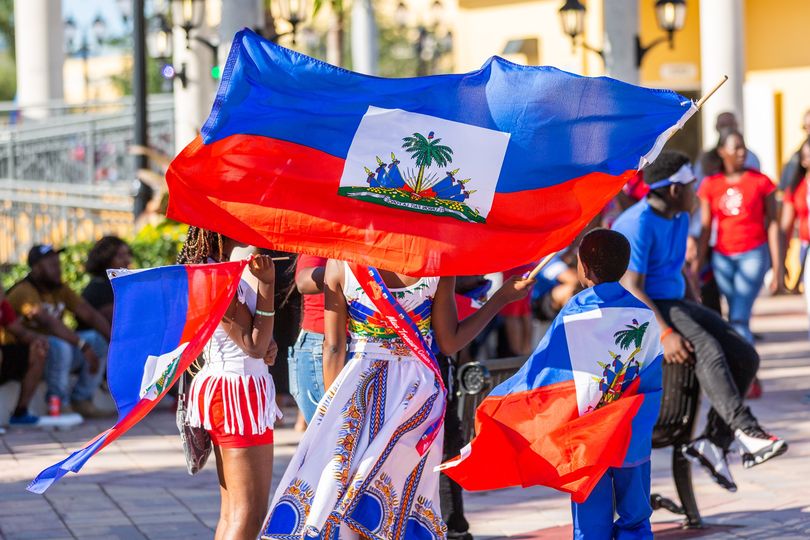Port-au-Prince (Haiti): Voters in Haiti go to the polls on Sunday with ballot papers crammed with 54 candidates seeking to become the next president of the hemisphere’s poorest country.
The vote to succeed President Michel Martelly next February is being held in a climate of insecurity and a shrinking United Nations peacekeeping force, and coincides with legislative and municipal elections.
The winner will most likely emerge from the top three candidates, led by Jude Clestin, a Swiss-educated mechanical engineer who headed a government construction agency and is running under the LAPEH Party (Alternative League for Progress and Emancipation of Haiti).
Jovenel Mose, owner of a large banana exporting business in the north of the country, is the candidate for Martelly’s Parti Haitien Tet Kale (Haitian Party of Bald Heads); and former Senator Moise Jean-Charles, an outspoken critic of Martelly, represents the Platform Petit Dessalines (Children of Dessalines) ticket. The party is named after a former Haitian independence leader.
A runoff for the presidential race between the top two candidates is scheduled for Dec 27.
Martelly, a popular singer by profession, shook up the political order with his election victory in 2011 and accelerated rebuilding after a 2010 earthquake had leveled much of the capital. But critics say he failed to halt to corruption and political infighting, which has held back foreign investment over the last couple of years.
Mose, 47, enjoys the campaign structure, private sector financing and political backing of Martelly, who has campaigned for him throughout Haiti, typically donning pink, the color of the party, which is named for the president’s smooth scalp.
Like Martelly he also presents himself as a non-traditional politician and the child of poor peasant farmers in the northeast of the country.
“I’m an entrepreneur. The politicians they talk and talk … They don’t do anything,” he told a press conference this week.
His campaign platform boldly predicts the “creation of hundreds of thousands of jobs for the youth” working in the call centers of foreign firms, such as Google and Facebook .
He has promised to modernise Haitian agriculture to be able to export 70 per cent of food grown locally within three years of his election.
Skeptics say Haiti’s antiquated land-tenure laws and unclear ownership registry, make that a tough pledge to fulfill.
Clestin, 53, missed the runoff in controversial presidential elections in 2010, but says his experience as a former government executive better qualifies him to lead Haiti’s anemic economy.
The poorest country in the Americas, Haiti already struggles to feed its population of 10.4 million, and 600,000 Haitians already rely on international food aid to survive, according to the United Nations.
Half of the population live on less than $1 a day and many Haitians spend the bulk of their income on food.
He said he would expand Martelly’s free elementary school program financed by remittance taxes as well as invest in agriculture.
“We need a different form of government … that works for the country, not a group of people,” he said.
Clestin is supported by Wyclef Jean, the US-based Haitian hip-hop star and one-time presidential aspirant, who produced a campaign song saying “the time has come” to end corruption as well as deforestation that has left the country’s hillsides notoriously bare.
Jean, who voted for Martelly in 2011, said he plans to fly to Haiti to vote. “Martelly changed things and brought new energy and did the best he could with what he had, but we don’t want a kingship, Haiti is not a court,” he said.
The legislative vote is also crucial as Haiti’s parliament dissolved in January after two missed elections left the Senate and the Chamber of Deputies without a quorum when the terms of sitting members ran out.
Recent political instability over gas prices, allegations of corruption and the vacuum caused by the lack of a legislative branch, have undermined confidence in efforts by the international community to put Haiti back on its feet after the 2010 earthquake.
Security is being tightened after violence disrupted voting in August during the first round of legislative voting. But Haiti’s 12,000-strong UN-backed National Police lacks the numbers and resources to cope if things get out of hand.
